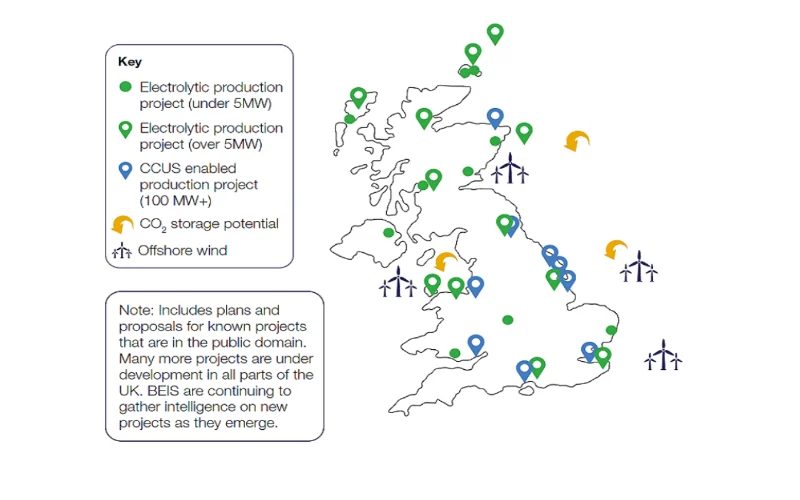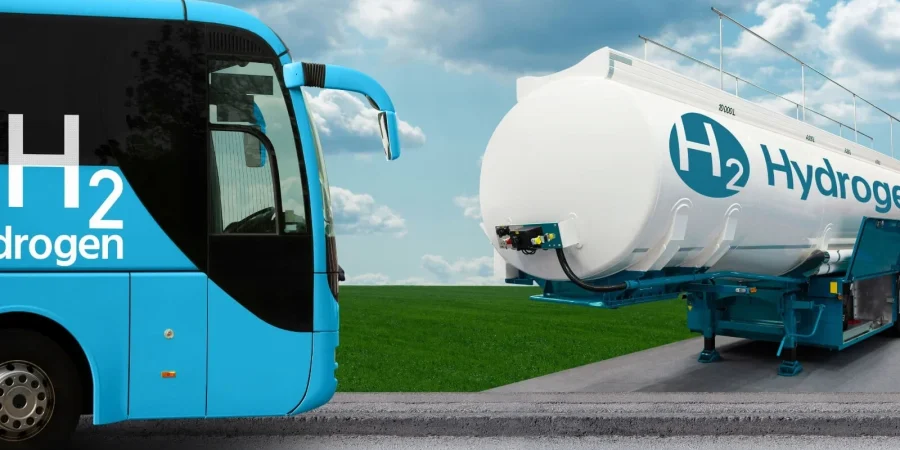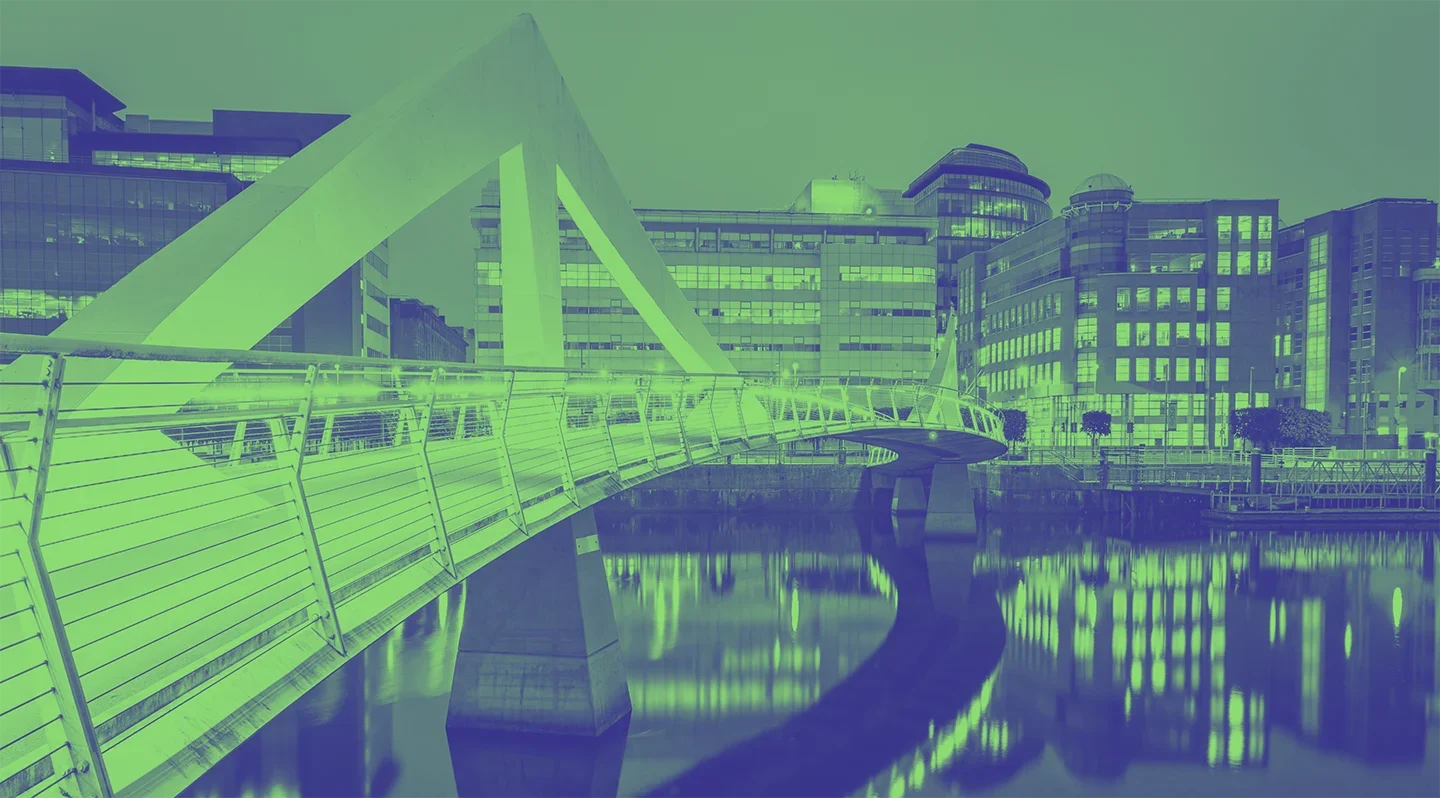Hydrogen is the most abundant element on earth. If used as a fuel it has many uses and has been in commercial use for over 200 years. Why are we still talking about it as the energy of the future?
What is hydrogen used for?
Hydrogen is a type of energy carrier which can be used to store, move, and deliver energy produced from other sources. These qualities make it an attractive fuel option for transportation and electricity generation. You might immediately think of an Airship (or a blimp) but hydrogen can fuel planes, trains, buses and cars. Today, hydrogen is more commonly used in industrial processes such as welding and petroleum refinery.
What’s exciting about hydrogen is not how it is used or produced today, it’s how that’s going to change within the next decade. The UK Government has even announced their own hydrogen strategy. They are aiming for 5GW of low carbon hydrogen production capacity by 2030. This is the equivalent amount of natural gas consumed by over 3 million households in the UK each year. This new, low carbon hydrogen could help provide cleaner energy to power our economy and our everyday lives.
Learn how GenComm is leading the way for Northern Ireland Hydrogen production.
How is hydrogen produced?
Hydrogen may be the most abundant element on Earth, but in order to make it usable we have to separate it from something else. You probably know that water (H2O) is made up of one oxygen and two hydrogen atoms. But, we actually get most of our hydrogen from natural gas, which is a fossil fuel.
What is grey hydrogen?
Through a process called Steam Reforming, Hydrogen is extracted from natural gas (a fossil fuel) releasing CO2 emissions into the air. This is how the majority of hydrogen is produced today. Controversially, this process is not environmentally friendly. However, it is the cheapest source of industrial hydrogen. Grey hydrogen is used as a feedstock, or input, into making other chemicals and plays a variety of roles in refineries to convert crude oil into different end products.
This is why we still refer to hydrogen as fuel of the future. We know it’s possible to make ‘clean hydrogen’ but we haven’t perfected it yet.
What is blue hydrogen?
Blue hydrogen is not without controversy and challenges. However the UK government is supporting its production through various initiatives which aim to make the UK a global leader in hydrogen production. The ‘Net Zero Innovation Portfolio’ is a government backed £1 billion fund to accelerate commercialisation of low-carbon technologies and systems for net zero. Hydrogen production is integral to this.
Like grey hydrogen, blue hydrogen is produced using natural gas. However, the CO2 emissions are trapped and stored permanently underground through a process known as carbon capture, usage and storage (CCUS). Blue hydrogen production and CCUS is currently very expensive and is proving difficult to scale.
Why is the UK government backing it?
This is a long term play. It is hoped that eventually economies of scale and technology advances make blue hydrogen economically viable. If this is the case, the UK stands to be a global leader in the supply of hydrogen.
What is green hydrogen?
Green hydrogen, also known as clean hydrogen, is produced using renewable energy and electrolysis to split water. No greenhouse gasses are created using this method. Although green hydrogen is considered expensive by today’s standards, it is believed that the cost will decrease substantially over the coming years. As the UK increases its renewable energy capacity, the excess supply can be used to produce green hydrogen. This helps to combat the risk of renewable energy going to waste as green hydrogen can be stored and easily transported.
The UK has an established ‘gas network’ with decades of experience in production, distribution, storage, use and regulation of gas. It is hoped that this can be the catalyst for hydrogen adoption. Potential use cases for hydrogen gas include power generation and heat in industry and homes. The UK also has favourable geology for large-scale storage of hydrogen.
Should we be excited about hydrogen?
That depends on you! If you like to discuss the price of petrol then you should be excited about hydrogen. What’s probably more interesting is our future hydrogen economy:
“The UK is well positioned to be a world leader in low carbon hydrogen production and use, delivering green jobs and growth to support levelling up across our industrial heartlands and across the UK. But we can only realise these economic opportunities if we act now to put in place the necessary environment and support to develop robust supply chains, upskill our people and secure high-quality jobs, and lay the groundwork to unlock investment and export opportunities.” Source: UK hydrogen strategy.

How might we use hydrogen in future?
It is important to note that green hydrogen is a clean-burning fuel. No greenhouse gasses are emitted.
Wrightbus and Translink are trialling a hydrogen powered bus today. Public transport around Northern Ireland will someday soon be powered by zero-emission buses. Green hydrogen is one of the leading candidates to fulfill this need.
Do you know if your electricity is generated by renewable energy? You can switch to a green tariff today. It is very likely that power stations will be able to use green hydrogen to provide electricity to your home.
If you have gas central heating, it is almost certain that your next boiler will be a hydrogen-ready boiler. This means, you continue to receive ‘gas’ to your house in the same way and your existing system can be reused.
Hydrogen has already been demonstrated to power planes, buses, ships and cars. In future it’s likely that you won’t even know you are using hydrogen.



